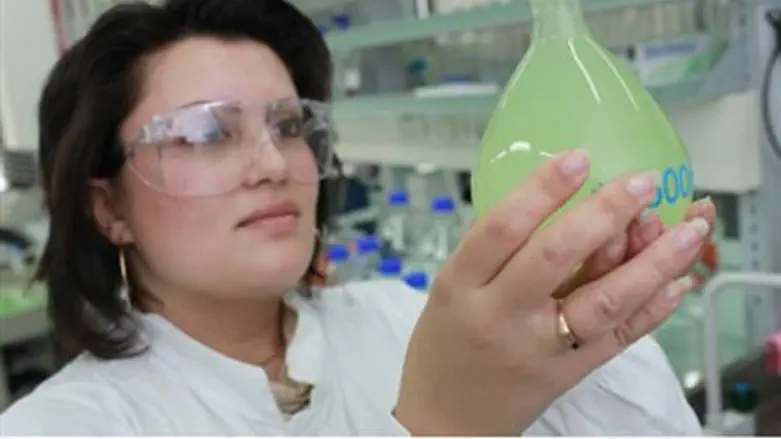
Scientists throughout Israel's universities and hospitals are developing innovative new biotechnologies, as Israel earns $3 billion a year from the field.
A review of the field on the Ministry of Foreign Affairs website notes that internationally-sold blockbuster prescription drugs that treat multiple sclerosis, cancer, Alzheimer's and Parkinson's diseases derive from Israeli biotechnology.
In addition, Israeli research is at the forefront of the emerging fields of stem-cell therapy and genomics, and two Nobel Prizes in Chemistry - to the duo Profs. Avram Hershko and Aaron Ciechanover of the Technion-Israel Institute of Technology and to Prof. Ada Yonath of the Weizmann Institute of Science – are among the many awards bestowed on the country's biotech scientists.
Israel's biotech industry is the most aggressive in the world, with more startups per capita then any other country. Its 180 biotech companies are creating therapeutic products, diagnostic tools and revolutionary drug-delivery techniques benefiting people all over the world.
While Israeli biotechnology embraces the whole biotech sphere, from animal vaccines and diagnostics to plant tissue culture, bioreactors, seeds, diagnostics and bio-pesticides, its emphasis is firmly on medical agents, diagnostics, and cell- and tissue-therapies. Some 60% of Israeli biotech focuses on human therapeutics, including drug discovery, cell therapy and genetics. A further 20% of Israeli biotech companies produce diagnostic kits.
Among the best-known and most successful medications developed in Israel are Copaxone and Azilect. Copaxone is a breakthrough treatment that significantly reduces the severity and frequency of clinical episodes in multiple sclerosis patients. Azilect is used to treat Parkinson's disease, both as initial therapy and in conjunction with L-dopa. The two medicines are based on research carried out in the Weizmann Institute in Rechovot and the Technion in Haifa, respectively.
Other important and effective Israeli-developed medications are Exelon, for Alzheimer's disease, and Doxil, a chemotherapy agent.
Research is ongoing for the development of stem-cell medication, drugs derived from living cells, re-engineering existing drugs, computational biotechnology, and more. Another field of interest is genomics, wherein the RNA system in living cells is used to control which genes are active and how active they are. Rehovot-based Rosetta Genomics is using RNA-based technology to develop a wide range of diagnostic tests for cancers and women's health indications, while Quark Pharmaceuticals, with research facilities in Rehovot, has created a fully-integrated drug development platform to deliver RNA molecules to the eye, ear, kidney, lung, spinal cord and bone marrow.
One of the best-known diagnostic devices developed in Israel is the Pillcam, created by Given Imaging. The pill-sized camera can be swallowed, and is used to diagnose stomach disorders. Easily ingested, the capsule moves naturally and painlessly through the gastrointestinal tract, wirelessly transmitting to a portable recorder along the way, providing high-quality images on a computer workstation.
Despite the successes, the process of scaling up biotech R&D to early production and beyond is a high-risk undertaking. Israel's government has designated biotechnology a Preferred Sector, and supports a spectrum of programs to help start-ups survive the difficult stages between proof of feasibility and final success. They include:
- R&D grants from the Chief Scientist's Office (since the early 1990s);
- the Magnet framework that brings companies and researchers together to develop novel generic technologies, underwriting up to 65% of the budget (since 1994);
- a National Committee for Biotechnology tasked with developing and promoting biotechnology in Israel (1995);
- Bioplan 2000, which created dedicated biotech incubators to bridge the gap in funding, infrastructure and managerial talent;
- naming biotechnology a National Project and creating infrastructure centers which give researchers access to essential equipment and know-how (2002);
- a generous Grants Program administered by the Israel Investment Center;
- and an Automatic Tax Benefits program which offers foreign investors unique advantages.
For more information, click here.